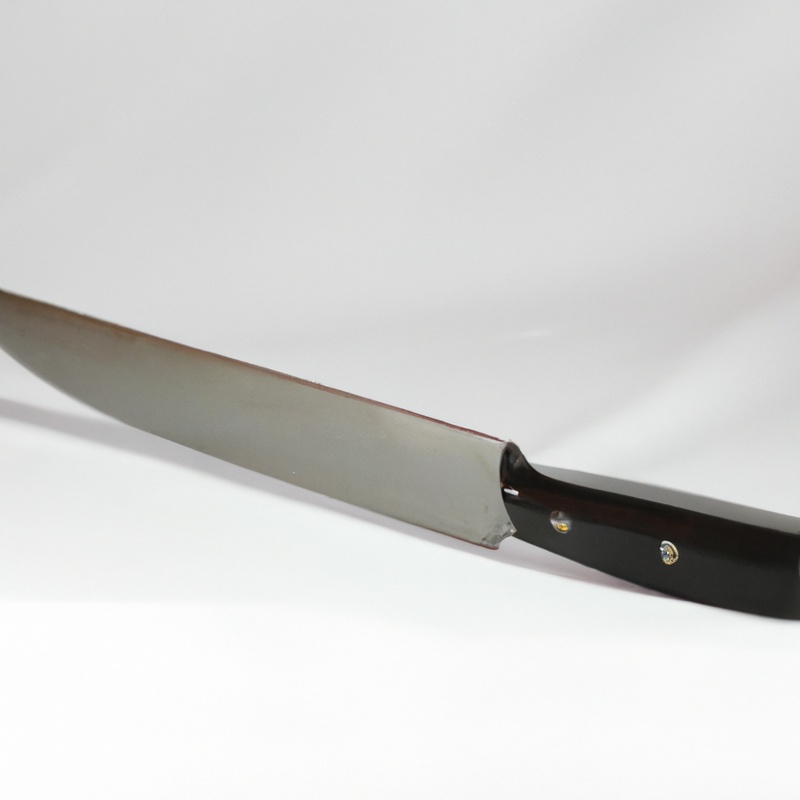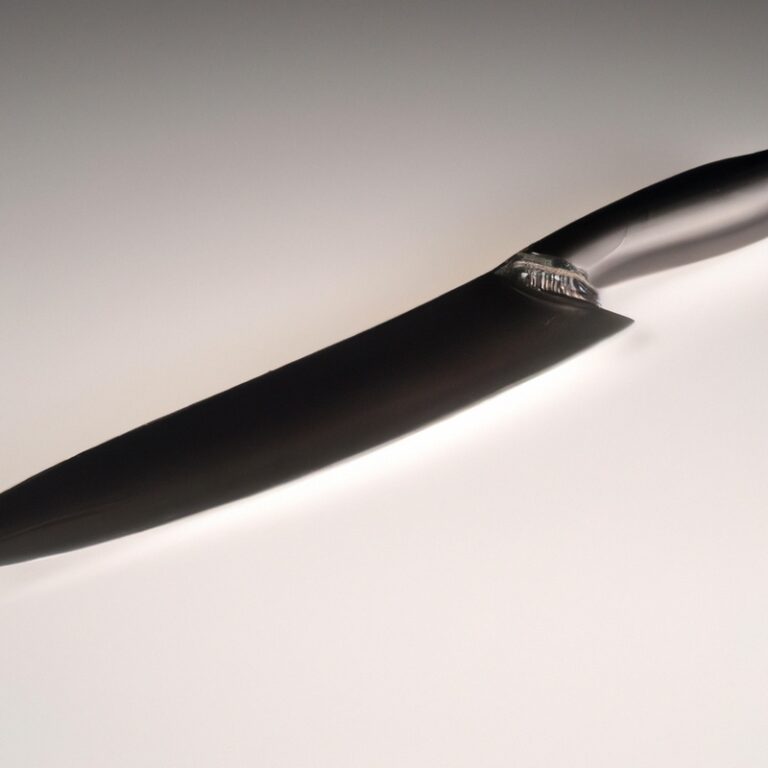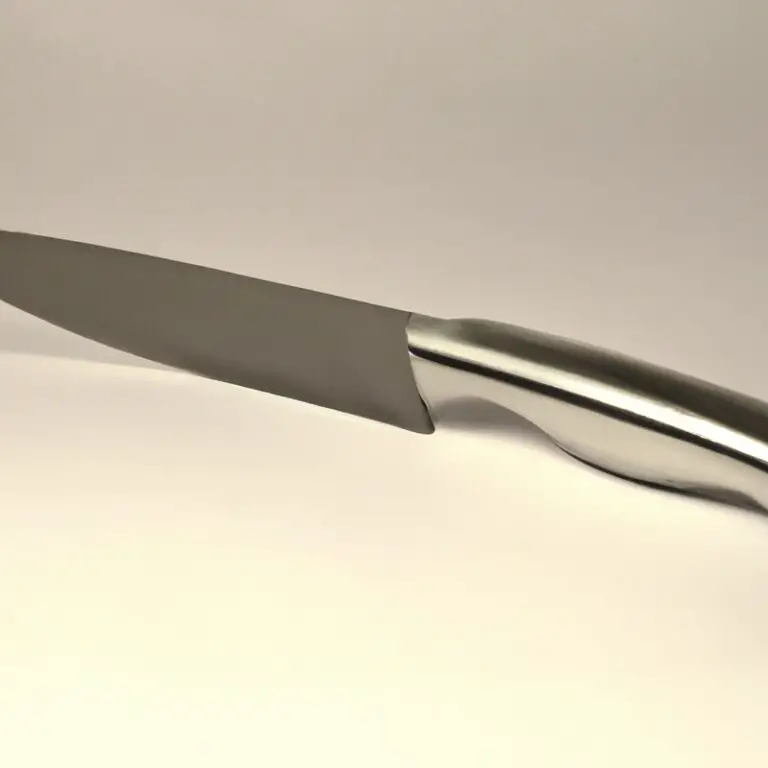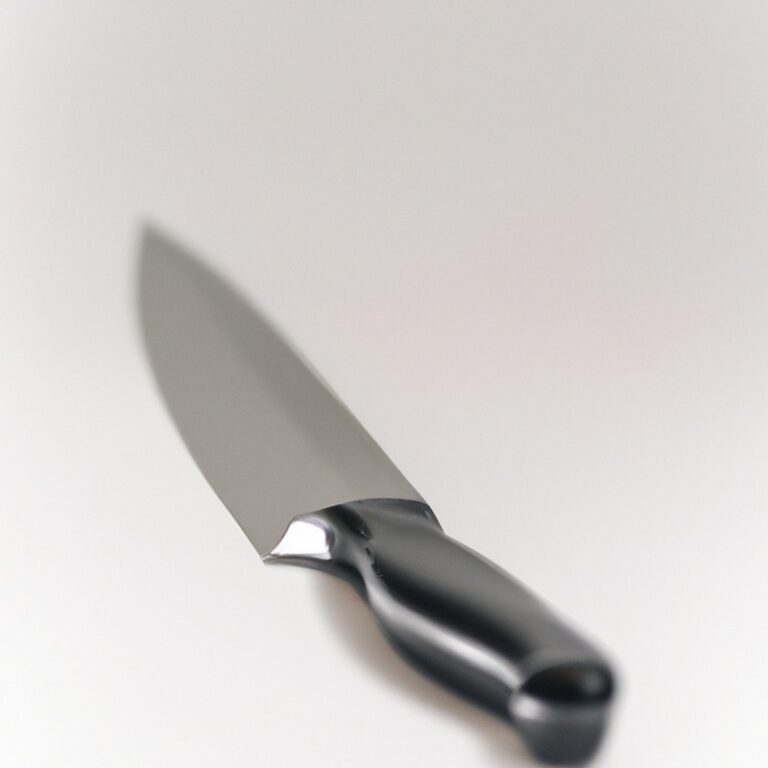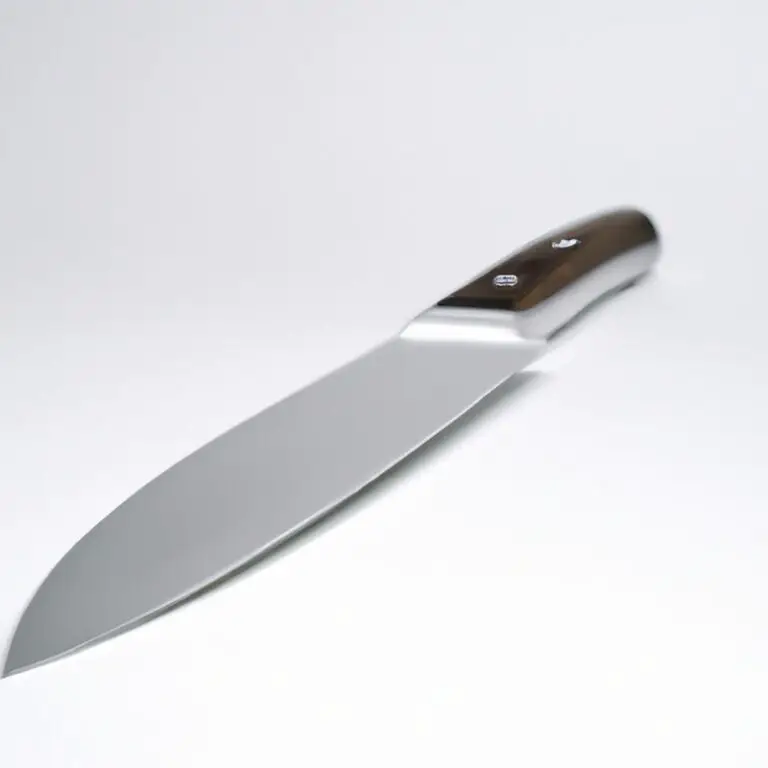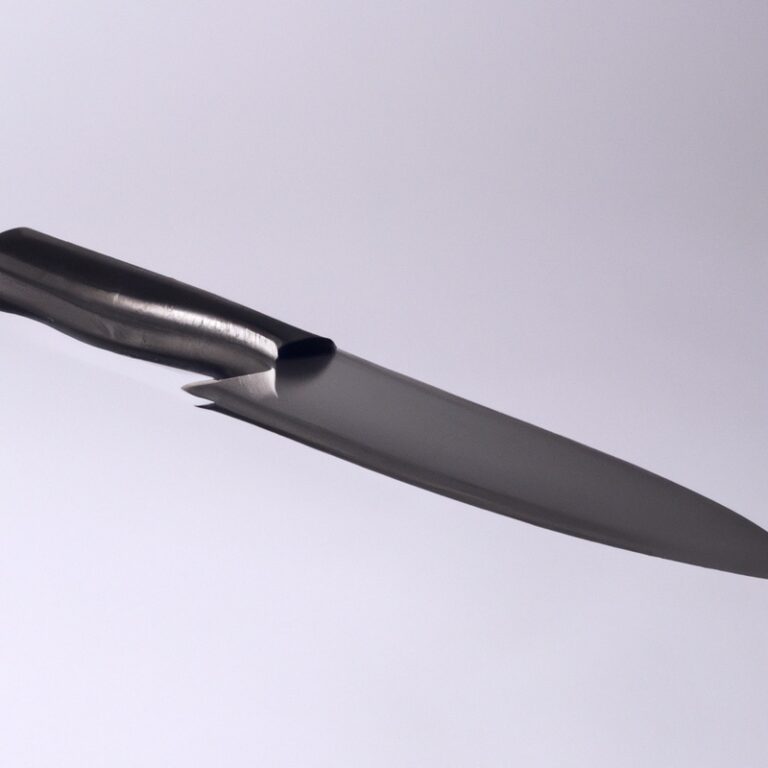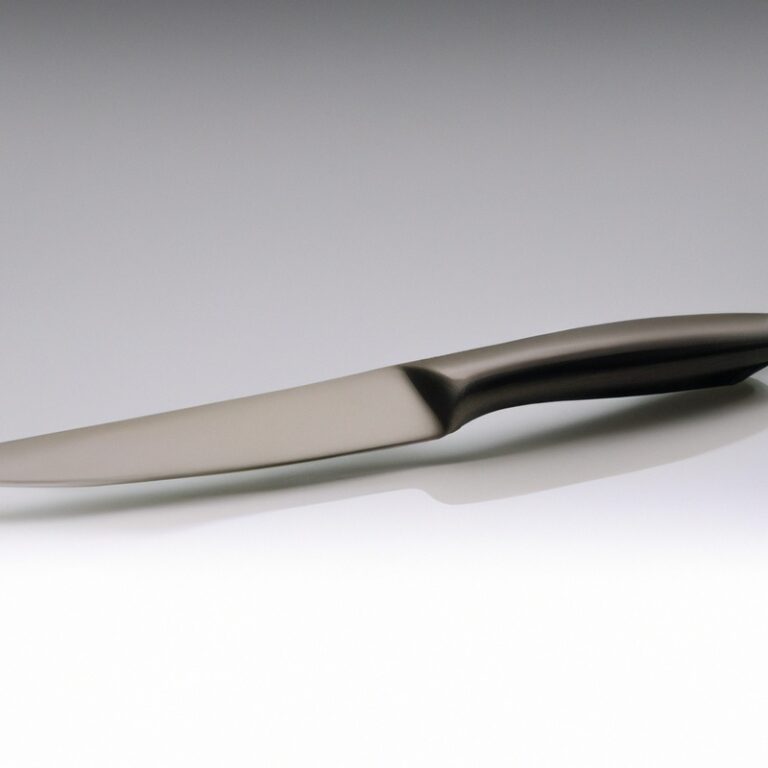What Is The Role Of Niobium In Knife Steel?
Key Takeaways:
- Niobium in knife steel enhances hardness and edge retention.
- Niobium promotes fine grain structure, improving toughness and wear resistance.
- Niobium also aids in preventing the formation of carbides, improving corrosion resistance.
- The role of niobium in knife steel is crucial for achieving high-performance cutting tools.
Have you ever wondered what makes a high-quality knife steel so effective? Well, brace yourself because I’m about to take you on a journey into the world of metallurgy and explore the crucial role of niobium in knife steel.
Niobium, a lesser-known element, may not be the first thing that comes to mind when you think of knives, but its impact on their performance is undeniable.
From enhancing strength and toughness to improving wear and corrosion resistance, niobium is a hidden hero in the realm of blades. So, let’s dive in and unravel the mysteries behind this fascinating element’s contributions to the world of knife making!
| Role of Niobium in Knife Steel |
| Increases strength and toughness |
| Improves wear resistance |
| Promotes fine carbide distribution |
| Refines grain size |
| Enhances corrosion resistance |
| Helps prevent grain growth during heat treatment |
Importance of Niobium in Knife Steel
Enhanced Strength and Toughness
Niobium plays a crucial role in enhancing the strength and toughness of knife steel.
It helps to refine the microstructure of the steel, resulting in smaller and more uniform grain size.
This finer grain structure contributes to improved strength and toughness, making the knife more resistant to wear and breakage.
By incorporating niobium into the steel composition, manufacturers can create knives that are not only strong but also durable enough to withstand demanding tasks.
This makes niobium a valuable addition to knife steel for those who prioritize strength and toughness in their cutting tools.
Increased Corrosion Resistance
Niobium plays a crucial role in improving the corrosion resistance of knife steel. It forms stable oxide layers on the surface of the steel, protecting it from rust and other corrosive elements.
This increased corrosion resistance ensures that the knife stays in good condition even when exposed to moisture or acidic environments.
By incorporating niobium into the steel, manufacturers can provide knives that are more durable and long-lasting. So, if you want a knife that can withstand the test of time and resist corrosion, look for one that includes niobium in its composition.
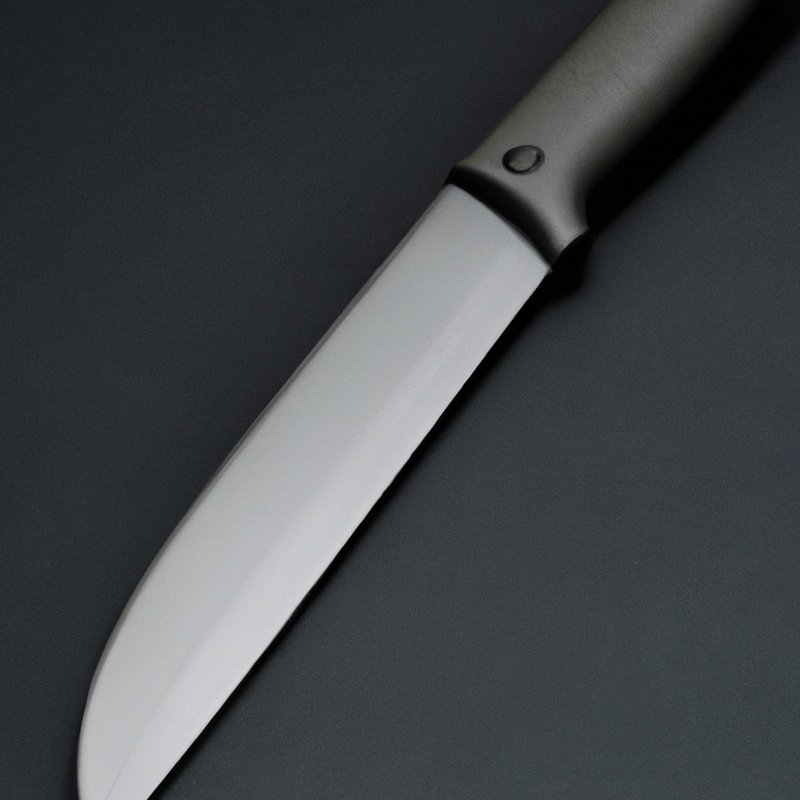
Improved Wear Resistance
Improved wear resistance is one of the key benefits of incorporating niobium in knife steel. Niobium helps to enhance the hardness and durability of the steel, making it more resistant to wear and tear.
This means that the knife will retain its sharpness for a longer period of time and require less frequent sharpening.
In addition, niobium also helps to prevent the formation of microcracks and wear particles, further improving the longevity of the knife. Overall, the inclusion of niobium in knife steel significantly improves its wear resistance and ultimately, the performance of the knife.
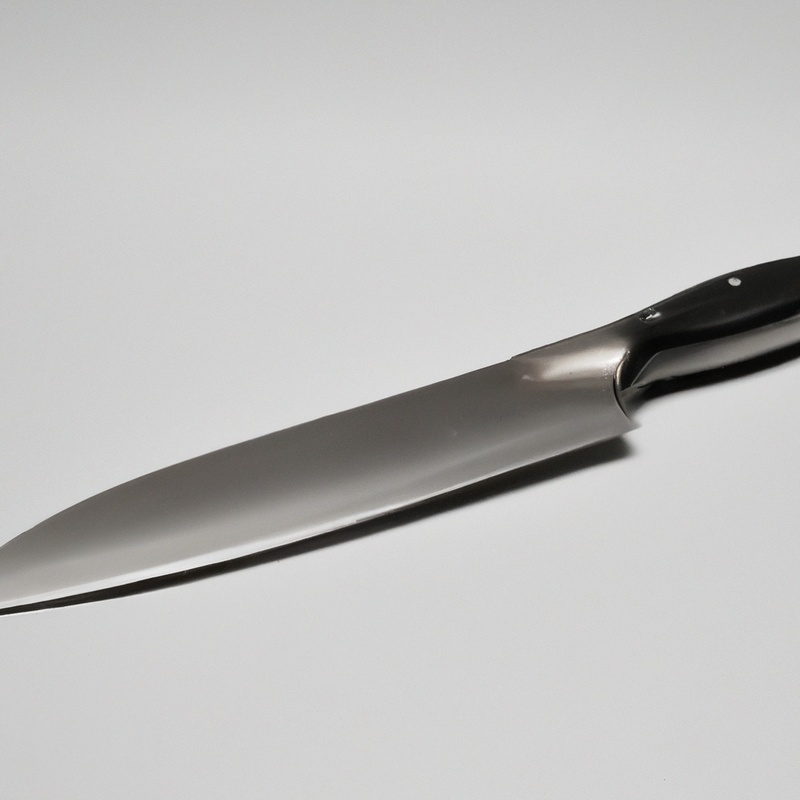
Niobium as a Grain Refiner in Knife Steel
Role of niobium in reducing grain size
Niobium plays a vital role in reducing the grain size of knife steel.
By adding niobium to the steel, it acts as a grain refiner, helping to break up the large grains and create a finer microstructure.
This leads to several benefits, such as improved strength, toughness, and wear resistance.
Smaller grains also enhance the overall performance and sharpness of the knife.
Ultimately, niobium’s ability to reduce grain size is crucial in producing high-quality knife steel that meets the demands of durability and cutting efficiency.
Niobium for Carbide Formation in Knife Steel
Influence of niobium on carbide formation
Niobium plays a significant role in carbide formation in knife steel. It promotes the formation of niobium carbides, which are highly effective in strengthening the steel matrix.
These niobium carbides act as obstacles to dislocation movement, making the steel harder and more resistant to wear.
Additionally, niobium helps in refining the distribution of carbides, leading to improved performance and durability of the knife steel. By influencing the carbide formation process, niobium enhances the overall quality and performance of the steel, making it an important element in knife making.
Effects of carbide distribution on knife steel performance
The distribution of carbides in knife steel plays a significant role in its performance.
When the carbides are evenly dispersed throughout the steel, it enhances the steel’s strength, toughness, and wear resistance.
This uniform distribution helps to prevent weak spots and ensures consistent performance across the blade.
On the other hand, if the carbides are clumped together or unevenly distributed, it can lead to decreased performance, such as reduced strength and increased vulnerability to chipping or cracking.
Therefore, achieving and maintaining an optimal carbide distribution is essential for maximizing the performance of knife steel.
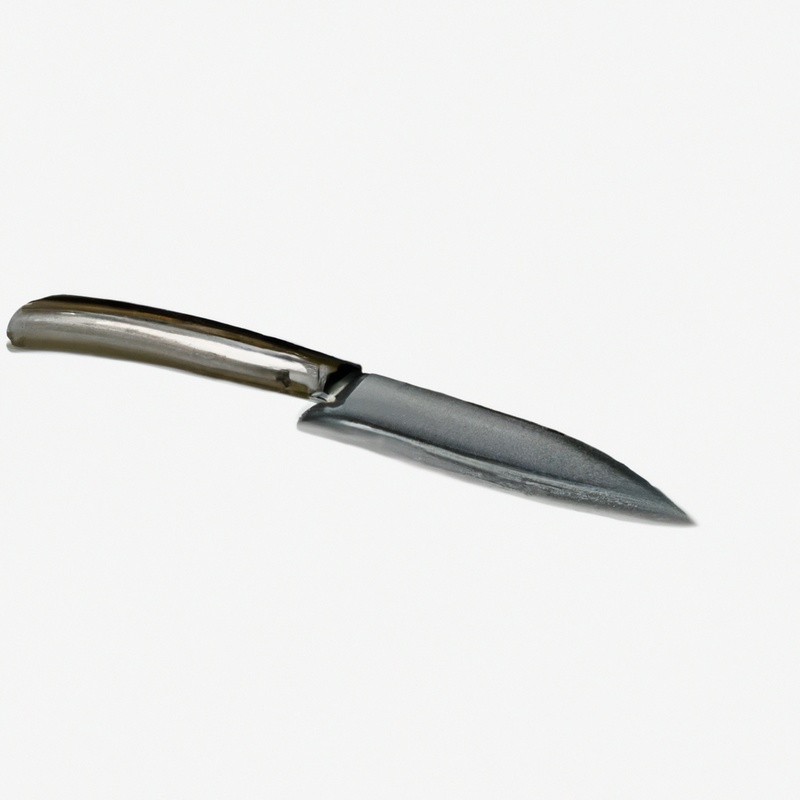
Niobium for Precipitation Hardening in Knife Steel
Mechanism of precipitation hardening
Precipitation hardening is a strengthening process used in knife steel.
It involves the formation and dispersion of fine particles within the steel matrix.
These particles restrict the movement of dislocations, making the steel harder and stronger.
Here’s how the mechanism works:
- Heat Treatment: The steel is initially heated to a high temperature to dissolve any existing particles.
- Quenching: The steel is rapidly cooled, which causes the formation of supersaturated solid solution.
- Aging: The steel is then aged at a lower temperature to allow the formation of fine precipitates.
- Precipitation: During aging, the dissolved elements in the steel separate out and form small particles.
- Strengthening: These particles hinder the dislocation movement, resulting in increased hardness and strength of the steel.
Contribution of niobium to hardness and strength
Niobium plays a significant role in enhancing the hardness and strength of knife steel.
By adding niobium to the steel composition, it promotes the formation of fine and uniformly distributed carbides.
These carbides act as strengthening agents, improving the overall hardness and toughness of the steel.
The presence of niobium also aids in the precipitation hardening process, where it forms intermetallic compounds that further contribute to the steel’s hardness and strength.
Niobium’s contribution in these ways helps to create durable and high-performance knife blades.
Final Verdict
Niobium plays a crucial role in enhancing the performance of knife steel.
Its addition to the steel composition leads to increased strength, toughness, corrosion resistance, and wear resistance.
Niobium acts as a grain refiner, resulting in smaller grain sizes that improve the overall strength and durability of the steel.
It also facilitates carbide formation, which helps in distributing the carbides more evenly, leading to better performance.
Additionally, niobium contributes to precipitation hardening, resulting in increased hardness and strength.
Overall, incorporating niobium in knife steel brings numerous benefits, making it a valuable element in the production of high-quality knives.

